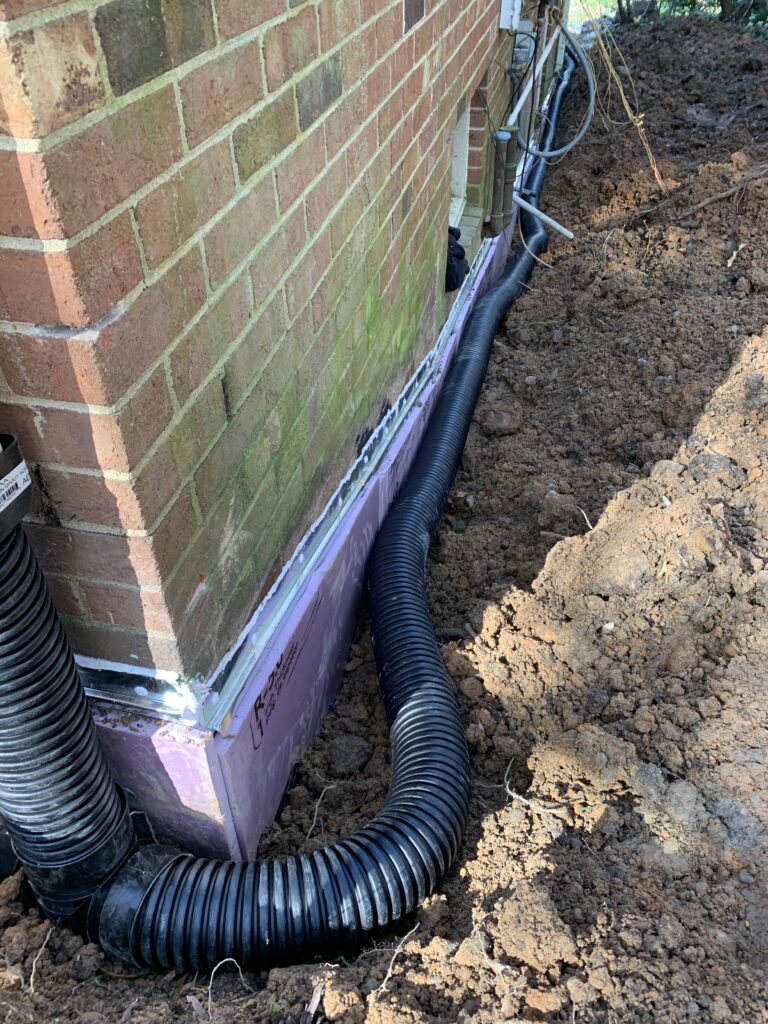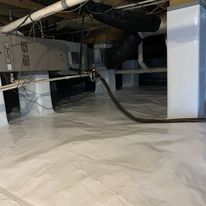Basements are important parts of a house, but they are also one of the most vulnerable to water damage. Flooding and water leakage can cause significant damage to the basement, which can lead to mold growth, structural issues, and a host of other problems.
The good news is that there are many different basement waterproofing types available that can help prevent water damage.
We’ll explore the various types of basement waterproofing and which one is right for you.
Basement waterproofing is the process of preventing water from entering the basement of a house. It involves sealing the basement walls and floors as well as installing a drainage system to collect and redirect water away from the house.
There are several different types of basement waterproofing, each with its own advantages and disadvantages.

Why is basement waterproofing important?
Installing waterproofing basements methods is important for several reasons.
It helps prevent water damage to the basement, which can be costly to repair. Water damage can also lead to mold growth, which can be harmful to your health.
Waterproofing can help prevent structural damage to your home, which can compromise its safety and stability.
The Different Types of Basement Waterproofing
Exterior Basement Waterproofing
Exterior basement waterproofing involves excavating the soil around the foundation of the house and applying a waterproofing membrane to the outside of the foundation basement wall.
This method is effective at preventing water from entering the basement, but it can be costly and disruptive.
Excavation and waterproofing membrane
Excavation and waterproofing membranes are two of the most common methods of exterior waterproofing. It involves excavating the soil around the foundation of the house and applying a waterproofing membrane to the outside of the foundation walls.
This basement waterproofing solution is effective at preventing water from entering the basement floor, but it can be costly and disruptive.
French Drain System
A French drain system is another type of exterior waterproofing that involves installing a perforated pipe around the foundation of the house. The pipe is covered with gravel and soil, which allows water to seep into the pipe and be directed away from the house.
This method is effective at preventing water from entering the basement and is less disruptive than excavation and waterproofing membranes.
Interior Waterproofing
Interior waterproofing involves sealing the basement walls and floors from the inside and installing a drainage system to collect and redirect water away from the house.
Interior sealants and installing interior water drainage can be less costly and disruptive than exterior waterproofing, but they are not as effective at preventing water from entering the basement.
Interior Drainage Systems
An interior drainage system involves installing a drainage channel along the perimeter of the basement walls. The channel collects water and directs it to a sump pump, which then pumps the water out of the house.
This method is effective at preventing water from entering the basement but does not address the root cause of the problem.
Sump Pump
A sump pump is a device that is installed on the basement floor and pumps water out of the house when the water level reaches a certain level.
This method is effective at preventing water from entering the basement, but like the above method, it does not address the underlying issue of the problem.
Vapor Barrier
A vapor barrier is a type of interior waterproofing that involves applying a waterproofing membrane to the interior walls and floors of the basement.
This membrane acts as a barrier, preventing moisture from seeping into the basement. While it does not address the root cause of the problem, it can help prevent moisture-related and wet basement issues.
Common Causes of Basement Water Problems
Understanding the common causes of basement water problems can help homeowners take preventative measures and address the issue before it becomes a more significant problem. Some of the most common causes of basement water problems include:
Poor drainage around the foundation
Cracks in the foundation walls or floors
Water seeping through basement windows or doors
High water table
Plumbing leaks or burst pipes
Heavy rain or flooding
High water pressure, or hydrostatic pressure
By identifying the root cause of the problem, homeowners can determine the best course of action to prevent water damage and identify viable basement waterproofing solutions.

Maintenance Tips for Basement Waterproofing
After waterproofing your basement, it’s important to perform regular maintenance to ensure that the system is functioning correctly. Here are some tips for maintaining your basement waterproofing:
Clean the gutters and downspouts to ensure that water is being directed away from the house.
Inspect the foundation walls and floors for cracks or damage, and have them repaired immediately.
Test the sump pump regularly to ensure that it is working correctly.
Check the basement for signs of moisture or water damage regularly.
Maintain proper ventilation and air circulation to prevent moisture buildup.
By following these maintenance tips, homeowners can ensure that their basement waterproofing system is working effectively and preventing water damage and toxic mold buildup.
Which type of basement waterproofing is right for you?
Choosing the right type of basement waterproofing depends on several factors, such as the cause of the water problem, the location of the house, and the budget. If the water problem is due to groundwater, exterior waterproofing may be the best option. If the water problem is due to poor drainage, interior waterproofing may be more effective.
It’s important to consult with a professional basement waterproofing contractor to determine the best course of action. They can evaluate the situation and provide recommendations based on your specific needs and budget.
Basement waterproofing is an essential step in protecting your home from water damage. By understanding the different types of basement waterproofing, you can make an informed decision on which method is right for you. Remember to consult with a professional basement waterproofing contractor to ensure that the job is done correctly.
Frequently Asked Questions (FAQs)
How much does basement waterproofing cost?
The cost of basement waterproofing varies depending on the method used and the size of the basement. On average, it can cost anywhere from $1,500 to $15,000.
Can I waterproof my basement myself?
While it is possible to waterproof your basement yourself, it is not recommended. Basement waterproofing requires specialized equipment and knowledge, and mistakes can lead to costly water damage.
How long does basement waterproofing last?
The lifespan of basement waterproofing depends on several factors, such as the method used and the quality of the work. On average, it can last anywhere from 10 to 20 years.
Will basement waterproofing increase the value of my home?
Yes, basement waterproofing can increase the value of your home by protecting it from water damage and ensuring that the basement is a safe and healthy living space.
Can basement waterproofing be done in the winter?
Yes, basement waterproofing can be done in the winter. It may take longer to complete the job due to weather conditions.
